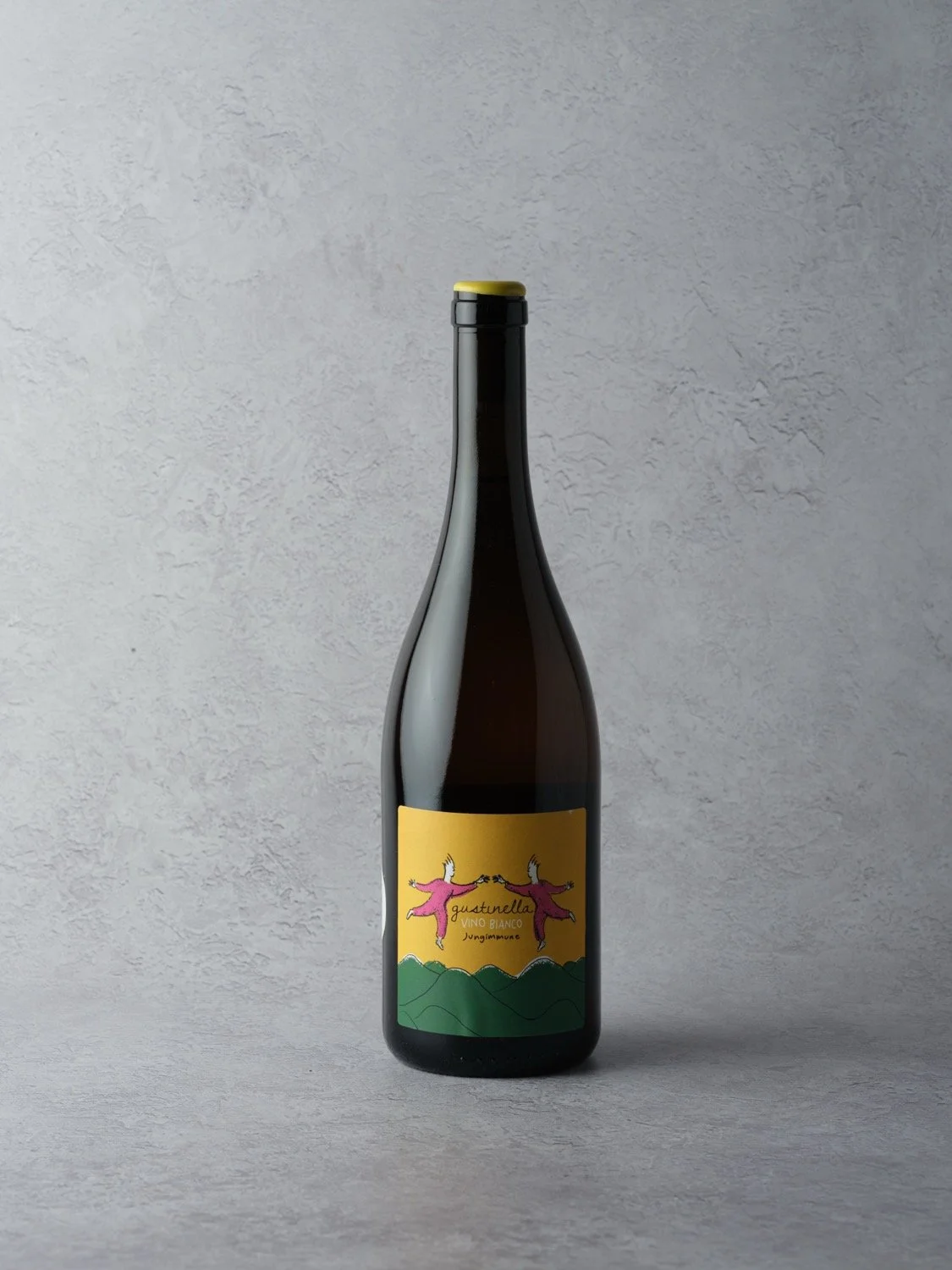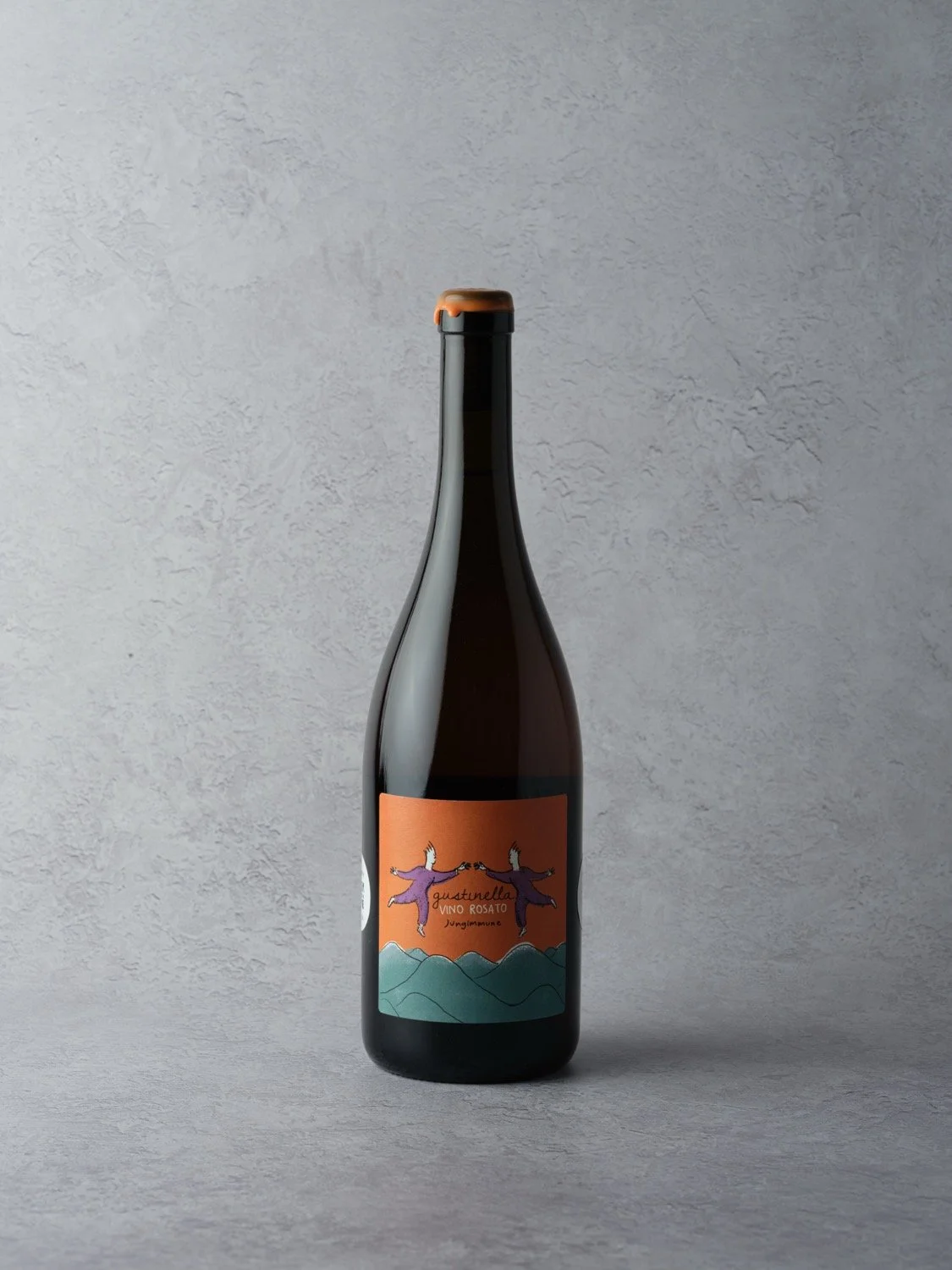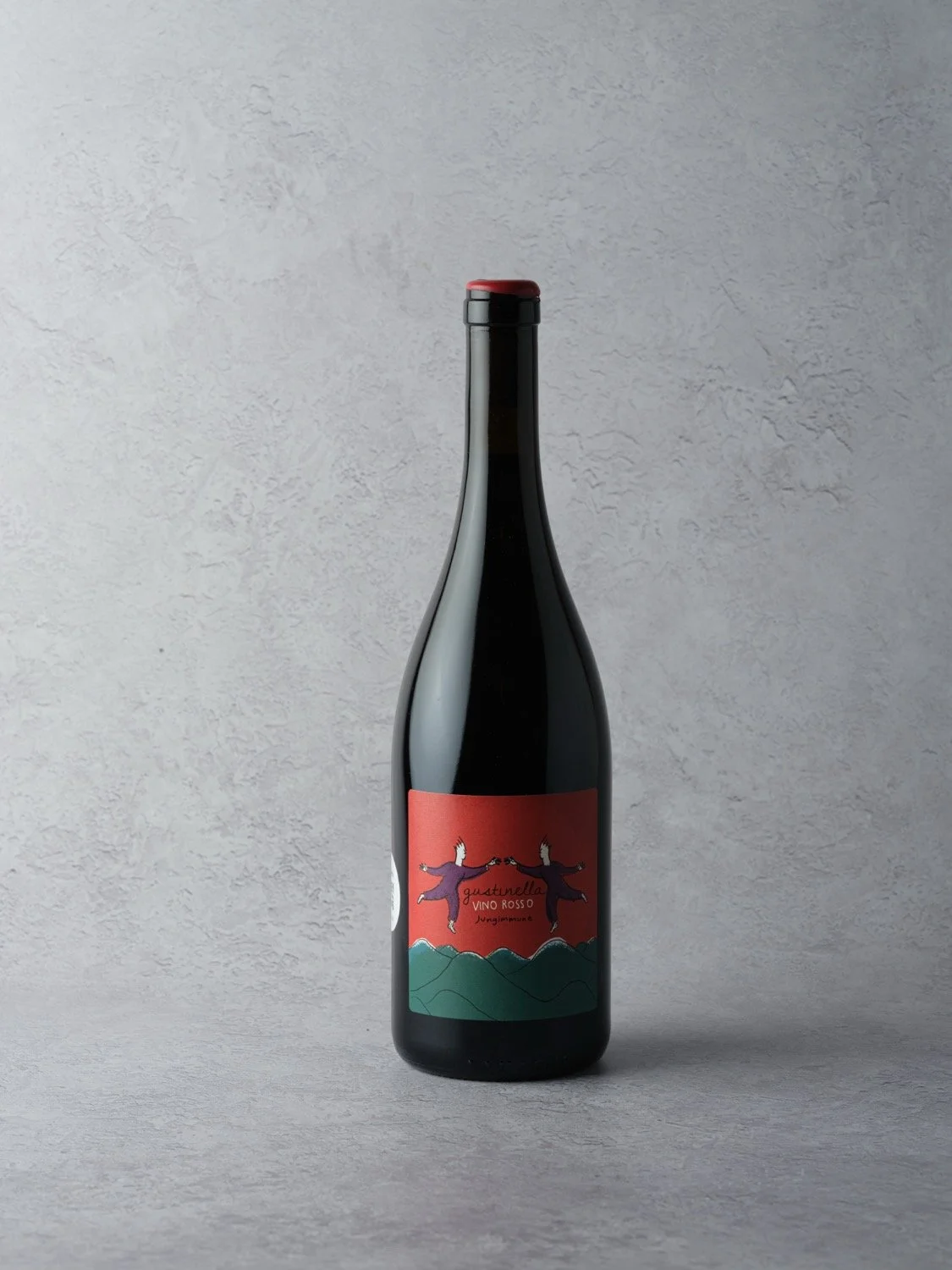GUSTINELLA
Etna
Sicily
Sonia Gambino's adventure began in early 2020 when she left the busy city lifestyle in Milan to move to Marsala, Sicily, to work more closely with nature, specifically in the field of winemaking. Shortly after her move, however, the country shut down due to Covid, resulting in the loss of her new job before it even started. When she found herself unemployed, Sonia returned to her native Maletto and took over an old, slightly decaying property her family used as a vacation home. Here, while the world was on pause, she worked tirelessly to fix up the place and spent her time outdoors, growing vegetables and tending the garden.
One afternoon, an old local farmer named Don Vincenzo, who happened to own a small vineyard but was struggling to keep up with it, asked Sonia whether she'd be interested in checking out the plot with the intention of possibly leasing it to her. Soon after, the duo found themselves clearing out a corner in Don Vincenzo's abandoned garage, and so Gustinella was born.
Today, Mount Etna is synonymous with Nerello (Mascalese and Cappuccio) and Carricante, but that wasn't always the case. In some isolated villages, like Maletto, extreme weather conditions and high altitudes (in this specific case, 1100mt above sea level) have made it difficult for these relatively newcomer varieties to ripen, so only the indigenous Granazzu (Grenache) and Grecanico Dorato grapes are grown there.
The terroir in Maletto is rather unique - naturally volcanic but also unusually dynamic - as the soil composition changes with every eruption. The volcanic ashes work almost as a natural fertilizer for the vines, making organic farming rather easy. Furthermore, since Maletto doesn't have wineries or large vineyards, the few scattered parcels Sonia ended up taking over were familial vineyards that had been farmed naturally for generations.
Typically, Etna isn't a terroir that gives plenty of structure; on the contrary, wines tend to be delicate and elegant, with a nice freshness that carries through. However, the grapes - and anything else planted on the terraces of Mount Etna, for that matter - show great intensity and character. This is due to the terroir, as already mentioned, but also thanks to the brutal thermal excursion between day and night. The production process is entirely manual and as low intervention as possible: vinifications are delicate and carried out with the utmost respect for the grapes, without the addition of any oenological products.
Bianco, Jungimmune
Vintage 2021
Style White
Region Maletto, Etna
Varieties Grecanico Dorato, Minnella, Albanella, Moscatella
ABV 12%
Soils Volcanic
Farming Organic
Winemaking A selection of indigenous white grape varieties grown in the high vineyards of Maletto (approximately 1200 meters), where old vines of Grecanico Dorato are found - a rare mutation of Grecanico originating from this area of Etna. The fruit is harvested and vinified together with small quantities of other local varieties, some of which are yet to be identified. Grapes are fully destemmed and lightly crushed, and left on the skins for 3 days. The fermentation occurs naturally and exclusively in stainless steel vats. The wine is then raised for about ten months on its fine lees and a further six months in bottle.
Tasting Note
Rosato, Jungimmune
Vintage 2021
Style Rose
Region Maletto, Etna
Varieties Field blend
ABV 11.5%
Soils Volcanic
Farming Organic
Winemaking A wine obtained from a single vineyard located at almost 1300 meters above sea level, surrounded by woodland. There are approximately 10 different indigenous grape varieties grown on this plot, which are co-harvested and directly pressed in stainless steel vats to ferment spontaneously. The ageing is punctuated by bâtonnage, in order to confer a sense of smoothness and balance the pronounced acidity due to the altitude. Ageing is carried out entirely in stainless steel and lasts about ten months before moving to bottle.
Tasting Note
Rosso, Jungimmune
Vintage 2021
Style Red
Region Maletto, Etna
Varieties Grenazzu, Tinto Nero, Nerello Mascalese
ABV 13%
Soils Volcanic
Farming Organic
Winemaking The main variety in this wine is Grenazzu (Grenache in the local dialect), which has been present in this Etna slope since the mid-1800s, brought from France during the Duchy of Nelson, of which the town of Maletto was a part. Along with it, tiny quantites of grapes from century-old vines of Tinto Nero, Nerello Mascalese, and other minor unidentified varieties are also harvested. The grapes are hand-picked, destemmed and gently crushed in vats where they macerate on the skins for 28 days. After racking and a light pressing, the wine is raised for about twelve months in a combination of concrete tanks and demijohns. Follows a minimum ageing of six months in the bottle prior release.
Tasting Note
Vino di Confine
Vintage 2021
Style Red
Region Maletto, Etna
Varieties Field blend
ABV 11.5%
Soils Volcanic
Farming Organic
Winemaking The wine symbol of Maletto. Obtained from grapes grown in a small single vineyard at 1100mt, where century-old vines are cultivated with the ancient Etna alberello system. About ten different varieties (white and red) are vinified together, as per the local tradition. After the manual destemming performed with the help of a perforated wooden frame, the grapes are delicately pressed and macerated for a few days (between 5 and 7 depending on the vintage). Once the alcoholic fermentation is finished, the wine moves to cement vats and demijohns where it is aged for about ten months before bottling.
Tasting Note






